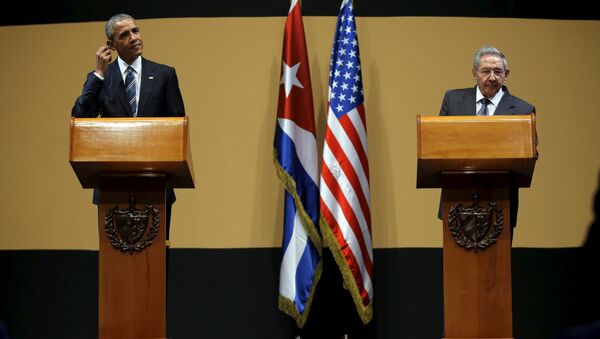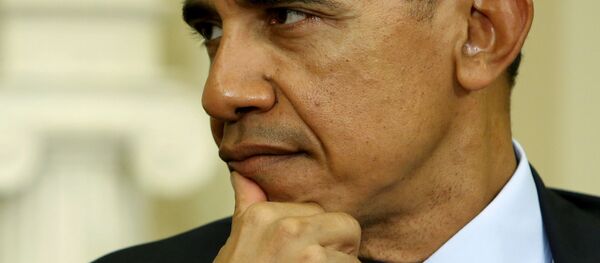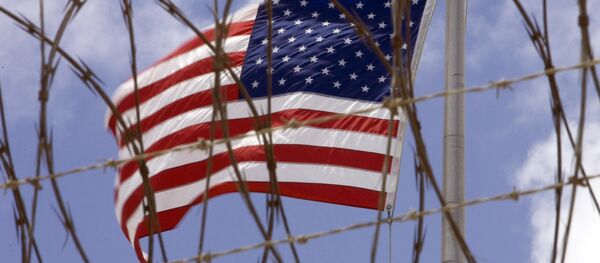WASHINGTON (Sputnik) — President Barack Obama’s two-day visit to Cuba is hugely symbolic, but will not set off any rapid transformation in relations between the two countries, according to several Latin America-watchers. Sputnik interviewed two US pundits: Aviva Chomsky followed in her father Noam's footsteps and is a professor, author and activist. Ivan Eland, director of the Independent Institute on Peace and Liberty, holds a PhD in National Security Policy and previously served as Director of Defense Policy Studies at the Cato Institute, a DC-based libertarian think tank.
"The president's visit to Cuba is neither a breakthrough nor just something symbolic, but perhaps both," Salem State University Professor of History and Coordinator of Latin American, Latino and Caribbean Studies Aviva Chomsky said on Monday.
On Monday, the second day of Obama’s historic visit to Cuba, deals were announced on cooperation in e-commerce, agriculture and law enforcement between the two countries. The leaders discussed introducing more opportunities for Americans to travel to Cuba, joint efforts to fight cancer and other diseases, as well as greater use of the US dollar in transactions.
Obama also noted that the first US-Cuba Human Rights Dialogue would be held in Havana later this year.
Chomsky argued that Obama’s trip was necessary if the countries were to break down decades of distrust.
"Symbolism is a big part of foreign policy and diplomacy, and clearly this visit is very symbolically important. US hostility and aggression toward Cuba has been very multi-faceted over the decades: military, covert, overt, economic, political, diplomatic," she recalled.
Obama was moving toward improving ties very slowly, Chomsky pointed out.
"This visit is a step toward acknowledging Cuba’s sovereignty and right to choose its own government, but less than a breakthrough, I’d say," she maintained.
The US leader was treading a fine line between offering respect for Cuban sovereignty and insisting on the US right to intervene in Cuba’s internal affairs, Chomsky argued.
"I imagine that he will make statements that will allow different sectors to interpret his trip in different ways. I also expect that he will allow further economic opening towards Cuba," she said.
The main obstacles to future progress were all on the US side, Chomsky insisted.
"I would say that the main obstacle is the US assumption, attitude and policy that it has the right to determine Cuba’s future and dictate what type of government and political and economic system Cuba should have," she stated.
All the hostility in US-Cuban relations had come entirely from the United States for more than half a century, Chomsky observed.
Future progress would depend on Washington’s willingness at last to leave Cuba alone, Chomsky concluded.
"If ‘normalization’ leads to the United States actually allowing Cubans to choose their own path and their own future, that would clearly be beneficial for Cuba," she said.
Ivan Eland, a vocal opponent of American intervention in the affairs of foreign countries who nonetheless believes Cuba should adopt a market-based system, agreed that progress would remain slow, but said that it, at last, was moving in the right direction.
"Even if Obama's initiative leads to little opening of the Cuban system, it is still the right policy," he said.
Opening up the US to Cuba could eventually lead to the communist island engaging in more trade and embracing foreign investment, but Havana’s leaders recall what happened to the Soviet Union when it started to undertake economic and political reforms, Eland added.





